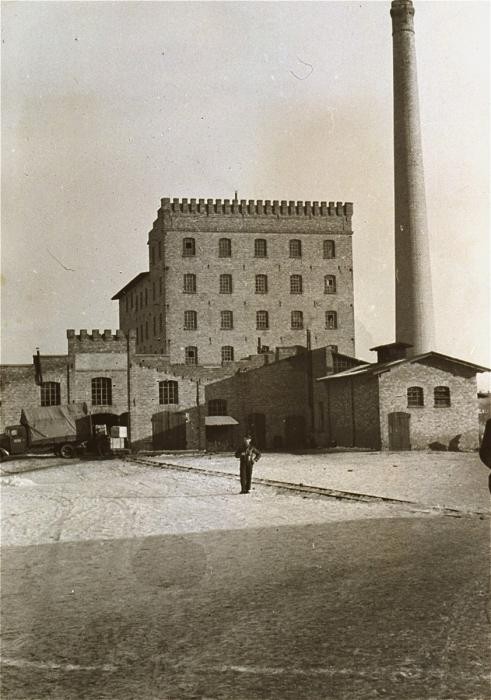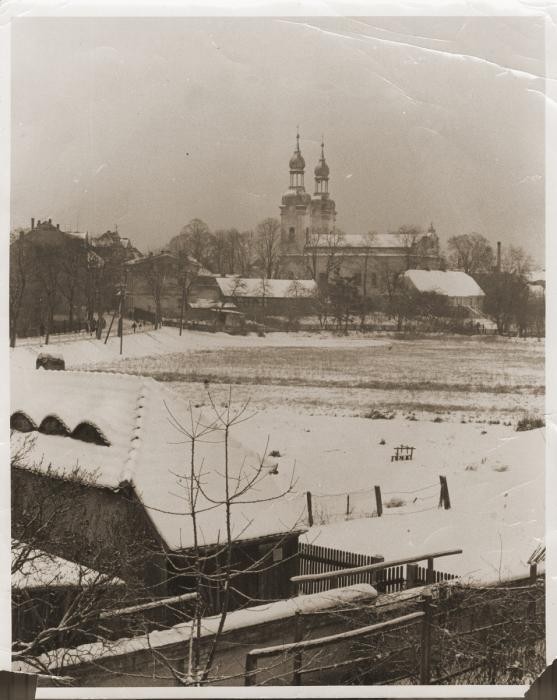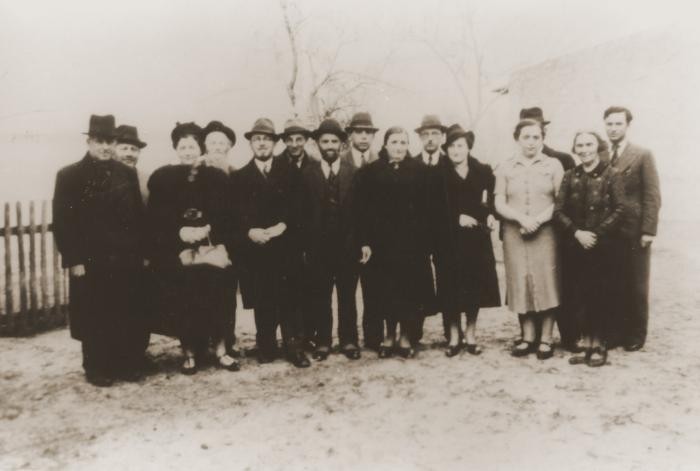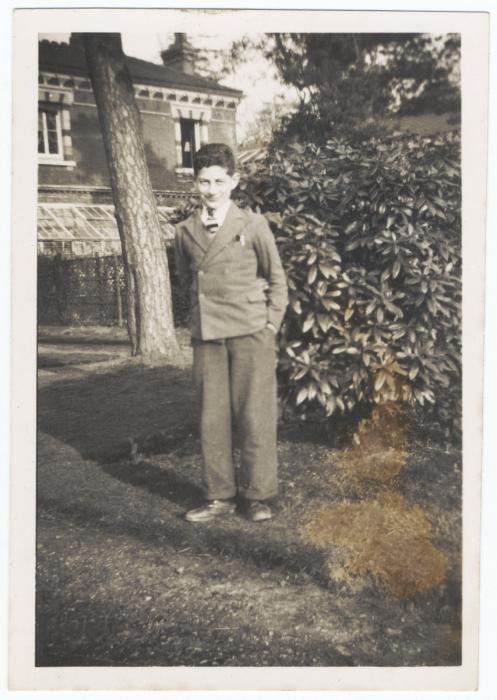Zbaszyn was the site of a refugee camp near the town of in the border region between Poland and Germany. It housed Jews of Polish nationality who were expelled from Germany in October 1938.

View of the flour mill in Zbaszyn, which served as a refugee camp for Jews expelled from Germany. The Jewish refugees, hungry and cold, were stranded on the border, denied admission into Poland after their explusion from Germany. Photograph taken between October 28, 1938, and August 1939.
Warsaw-based historian, political activist, and social welfare worker Emanuel Ringelblum spent five weeks in Zbaszyn, organizing assistance for the refugees trapped on the border.
Item View
View of Zbaszyn, the site of a refugee camp for Jews of Polish nationality who were expelled from Germany. The Jewish refugees, hungry and cold, were stranded on the border, denied admission into Poland after their expulsion from Germany. Photograph taken between October 28, 1938, and August 1939.
Warsaw-based historian, political activist, and social welfare worker Emanuel Ringelblum spent five weeks in Zbaszyn, organizing assistance for the refugees trapped on the border.
Item View
November 1938 group portrait of Jews of Polish nationality who were expelled from Nuremberg, Germany, to the Polish border town of Zbaszyn. The Jewish refugees were stranded on the border and were denied admission into Poland after their explusion from Germany.
Pictured from left to right are: Leo Fallmann; Rosa Fallmann; Mr. Auerbach; Mr. Zahn; unknown; unknown; Chaim Kupfermann; Anni Kupfermann; Simon Wassermann; unknown; Regina Holzer; and Bertha Holzer.
Item View

Theo Markus Verderber's mother, Gelle, was among the Jews of Polish nationality expelled from Germany in October 1938. Theo and his younger brother were born in Germany, but went with their mother to a refugee camp in the border town of Zbaszyn. Hungry and cold, the refugees were stranded on the border, unwelcome in either Germany or Poland.
Theo was ultimately chosen to join a Kindertransport to England, arriving there in February 1939. His mother, sister and youngest brother remained in Europe and were killed in Limanow, Poland (near Krakow), in 1942. His older brother, Israel Moses, survived and immigrated to Israel
Item View![Portrait of Herschel Grynszpan taken after his arrest by French authorities for the assassination of German diplomat Ernst vom Rath. [LCID: 05151] A man with light skin tone faces the left, looking over his shoulder with a solemn look. Herschel has medium length dark hair and is wearing a dark coat.](https://encyclopedia.ushmm.org/images/large/be42daeb-b120-4b22-b1c0-23a7d5652708.jpg)
Portrait of Herschel Grynszpan taken after his arrest by French authorities for the assassination of German diplomat Ernst vom Rath. Grynszpan (1921-1943?).
Born in Hannover, Germany, was the son of Polish Jews who had immigrated to Germany. In 1936 Grynszpan fled to Paris. On November 7, 1938, after having learned of the expulsion of his parents from Germany to Zbaszyn the Polish frontier, Grynszpan assassinated Ernst vom Rath, the third secretary of the German embassy in Paris. The diplomat's subsequent death two days later was used by the Nazi regime as justification for unleashing the Kristallnacht pogrom of November 9–10. In 1940 Grynszpan was turned over to the Germans by the Vichy government, but the date and place of his death have never been clarified.
Photograph taken in Paris, France, November 7, 1938.
Item View
We would like to thank Crown Family Philanthropies, Abe and Ida Cooper Foundation, the Claims Conference, EVZ, and BMF for supporting the ongoing work to create content and resources for the Holocaust Encyclopedia. View the list of donor acknowledgement.